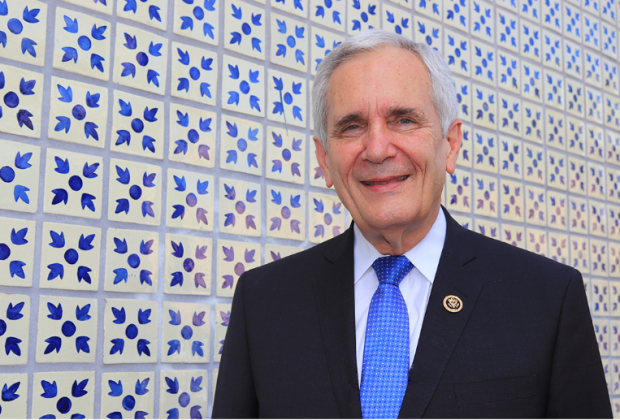Breaking Down Barriers to Student Aid
By: U.S. Representative Lloyd Doggett
As midterms close out and finals loom, paying for college and avoiding student debt can be scarier for Lockhart Lion seniors than even the most challenging coursework. Fortunately, some federal student financial assistance is free—but you have to ask for it first. The paperwork needed to make that ask can appear intimidating.
This month, the Free Application for Federal Student Aid (FAFSA) for the 2020-2021 school year was made available at https://studentaid.ed.gov. The priority deadline to complete the FAFSA for high school seniors applying to Texas state colleges and universities is January 15, 2020. Other post-secondary institutions may have their own FAFSA deadlines, but most schools require that FAFSA is submitted prior to starting school.
After a decade of working for a more streamlined financial aid process, I still find FAFSA too complicated, confusing, and underutilized. I am working to reform the process and take the intimidation out. Last year, high school graduates who failed to submit a FAFSA missed out on $2.6 billion in free money for college. That’s $2.6 billion of missed opportunity. With the ever-rising cost of college, aid is needed more than ever.
Addressing the student debt crisis is central to promoting a strong economy, opening up opportunities, and ensuring security for those who work hard. Cracks in our financial aid system often perpetuate inequality—inequality that stands in the way of pursuing the American Dream.
I successfully authored an amendment to simplify this process and make the FAFSA available on October 1, so students have more time to navigate the process. But, because barriers remain, I have filed two bills this Congress. These reform efforts are particularly important in Texas because in order to graduate, next year’s seniors will be required to complete the FAFSA.
My bipartisan Student Aid Simplification Act requires two bureaucracies to work together—the Department of Education and IRS—to do the heaving lifting for students by securely sharing the remaining taxpayer information required for FAFSA completion—the amount of income.
My second bill, the Equitable Student Aid Access Act, would allow more students to use a simplified FAFSA form. This means that a student who already receives certain federal means-tested benefits, like food stamps and Medicaid, could automatically qualify for a Pell Grant. Second, it would permit students (for those with up to $34,000 household income) to complete a simplified FAFSA form.
Third, it makes it easier for students to make financially-informed decisions about the cost of college. After applying for aid, students and their families must make one of the most significant financial decision in their lives—where to attend college—but while doing so, they often lack clear information about cost of attendance. This would ensure colleges and students speak the same language, developing universal terms and formatting for financial aid offer letters.
Given the roadblocks and complexity we currently face in the FAFSA, it is particularly important for families to get an early start and stay organized. Fortunately, there are local organizations helping students and families complete the FAFSA. The Austin Chamber of Commerce will be hosting Financial Aid Saturdays at a few schools and, for help closer to home, Lockhart High School has a FAFSA night on Tuesday, Nov. 12 at 6 PM with the University of Houston-Victoria, at Lockhart High School, 906 Center Street.
I encourage FAFSA-filers to take advantage of these resources. As I push forward to make aid more accessible, I welcome your counsel. If you have insight into or ideas about how we can alleviate the student debt crisis and break down barriers to equal opportunity, please email me at lloyd.doggett@mail.house.gov.




